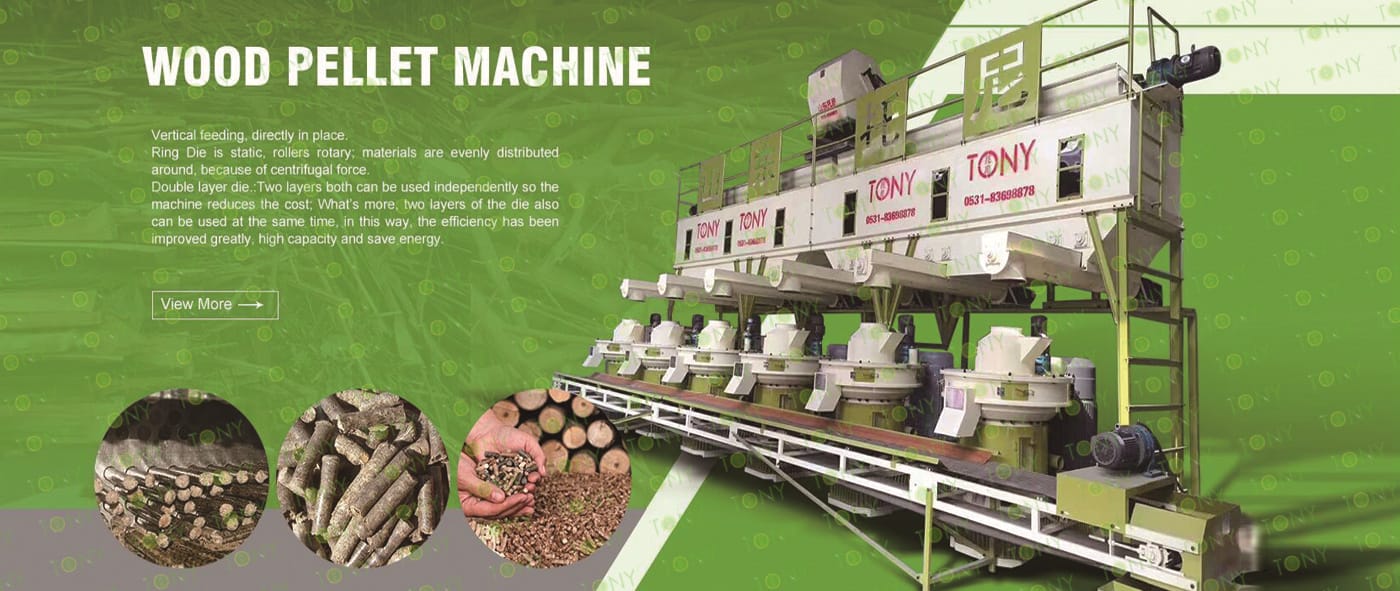1. The underlying logic of ecological value transformation: The "environmental benefit monetization" function of the pellet machine
The biomass pellet machine is not only a physical conversion device, but also an "converter" of ecological value. Its core mechanism lies in:
(1) Quantitative value of pollutant reduction
For every ton of straw pellet fuel replacing coal combustion, it can reduce:
CO₂ emissions by 1.1 tons (based on the emission of 2.6 tons of CO₂ per ton of coal combustion)
PM2.5 emissions by 4.9 kilograms (98% reduction compared to incineration)
Sulfur oxide emissions by 2.95 kilograms (98% reduction compared to incineration)
(2) Economic transformation
Through the calculation of environmental pollution costs, the above reduction amounts correspond to environmental benefits of approximately 200-300 yuan per ton.
(3) Ecological attribute of carbon cycle
The carbon released by the combustion of pellet fuel originates from plant photosynthesis (recent carbon), different from the "ancient carbon" of fossil fuels. Its lifecycle carbon emissions can be regarded as "zero net increment", possessing the natural attribute of carbon sink trading.

2. Three major paths for ecological value transformation
(1) Direct realization of environmental pollution control value
Revenue from ban on open burning of straw:
Pellet enterprises handle straw instead of open burning. Achieve "reduction burden + profit" win-win situation.
Air quality improvement revenue:
Combustion of pellet fuel reduces PM2.5 concentration by 12 μg/m³
(2) Value enhancement channel of carbon assets development
Key data: Each ton of pellet fuel can be certified for 0.8-1.2 tons of CO₂ equivalent reduction
(3) Closed-loop construction of ecological cycle value
"Fuel - Fertilizer" dual cycle:
The ash produced by pellet combustion (containing 10% potassium and 3% phosphorus) is processed into organic potassium fertilizer and returned to the farmland to replace chemical fertilizers. Can reduce fertilizer use by 20%.
Energy - Ecological synergy effect:
After the promotion of pellet fuel in mountainous areas, the forest coverage rate increased to 2024, driving ecological tourism revenue.
The biomass pellet machine, as a key hub for the transformation of ecological value, is redefining the "ecological currency" attribute of agricultural waste - when the combustion of each stalk not only provides thermal energy but also generates tradable carbon assets, measurable environmental improvements, and recyclable ecological benefits, the traditional "agricultural waste" truly transforms into "ecological capital" that supports the construction of ecological civilization. What we see is not only the transformation of energy forms, but also the future revaluation of the entire rural ecosystem's value.





















